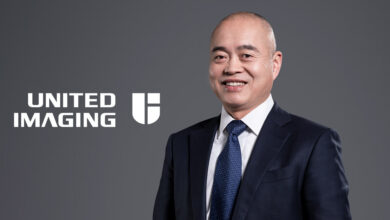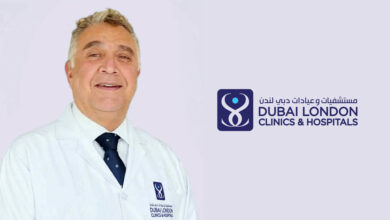From Good to Exceptional: The Practices and Metrics that Drive Medical Travel Success

The Middle East continues to position itself as a global hub for advanced healthcare services, attracting patients from across the GCC, Africa, and Asia. Governments and private health systems have invested heavily in world-class hospitals, state-of-the-art facilities, and internationally trained staff. Yet, while infrastructure is essential, what truly differentiates one hospital from another in the eyes of international or traveling patients is not simply what is built, but how the entire patient journey is delivered, measured, and continuously improved. Today, senior hospital executives face a critical question: Will your hospital remain just another option in a crowded field, or will you invest in a sustainable medical travel strategy that secures long-term resilience and trusted patient loyalty. Global Healthcare Accreditation (GHA) works with leading hospitals and clinics worldwide to transform programs from good to exceptional, ensuring measurable outcomes, enhanced reputation, and long-term sustainability.
The Opportunity – and the Risk
The global medical travel market is growing rapidly, with projections reaching hundreds of billions of dollars annually. For GCC countries, medical travel offers a dual opportunity: retaining outbound patients who currently seek care elsewhere and attracting inbound patients from neighboring regions. Countries like Saudi Arabia and the UAE are already embedding medical tourism into their national strategies as part of broader visions for economic diversification. However, this opportunity comes with risk. International patients today are well informed and demand not just clinical excellence, but seamless, safe, and trustworthy experiences. A program that is not fully prepared, or inconsistent in service delivery, risks damaging both reputation and return on investment. In today’s competitive market, a single negative patient experience can reverberate quickly through social media, embassies, and referring physicians.
Readiness – Building the Foundation for Success
Success in medical travel requires more than marketing campaigns and international patient departments. It requires a readiness strategy that ensures all elements of the patient journey – from initial inquiry to post-treatment follow-up – are aligned with global best practices. Before pursuing aggressive marketing, hospitals and clinics must ensure internal and external readiness.
Internal readiness means having:
- Adequate and clearly defined staffing for international patient care.
- Multilingual, culturally trained teams for patient and family engagement.
- Streamlined workflows for scheduling, admissions, and discharges.
- Established clinical pathways for high-demand specialties.
External readiness includes:
- A clear, consistent brand identity in target markets.
- Strategic relationships with facilitators, insurers, and referring providers.
- Flexible service offerings tailored to market-specific needs.
Healthcare organizations must evaluate their readiness across multiple dimensions: governance, operations, staff training, cultural competency, patient communication, and coordination with external partners such as hotels and transportation providers. GHA’s experience demonstrates that organizations who invest in readiness achieve faster patient conversion, improved satisfaction, and greater trust among payers and governments. Across the region, GHA-accredited and certified organizations like King Faisal Specialist Hospital & Research Center (KFSH&RC), Dallah Hospital Al Nakheel, Dr. Sulaiman Al Habib Al Khobar hospital, and M42 have embraced this readiness model, training staff to international standards, creating digital entry points for global patients, and embedding cultural sensitivity into service delivery.
Metrics That Matter – Going Beyond the Usual
For senior leaders, metrics are essential. They not only demonstrate return on investment but also serve as the foundation for continuous improvement. Most healthcare organizations already measure the right things at a high level—business performance and clinical quality KPIs that are fundamental to any health system. However, when it comes to medical travel, world-class programs go further. They segregate data specific to international patients and monitor outcomes across three pillars: clinical quality, business performance, and patient experience. This distinction is vital. Research consistently shows that excellent patient experience has a direct, positive influence on both clinical outcomes and business performance. For example, medical travelers who feel supported across the entire journey are more likely to adhere to treatment plans, report fewer complications, and recommend the provider to others.
By isolating medical travel–specific data, hospitals can uncover unique trends, address gaps, and demonstrate accountability to international payers and ministries of health.
Hospitals and clinics that excel in medical travel track a comprehensive set of metrics, such as:
- Business KPIs: Patient inquiries, referral sources, conversion rates, average revenue per international patient, true cost-of-service figures, pricing differentials, and payer mix.
- Operational KPIs: Inquiry response times, treatment coordination efficiency, and discharge-to-follow-up timelines.
- Clinical Outcomes (segmented for traveling patients): Complication rates, infection control data, readmission rates, and outcomes by country of origin—critical for demonstrating safety and reliability to global stakeholders.
- Patient Experience Across the Journey: Going beyond standard satisfaction surveys to measure the full continuum of care for medical travelers, from pre-arrival communication to post-treatment follow-up.
- Hospitality & Support Services: Quality of accommodation, airport transfers, concierge services, and the experiences of accompanying family members—all of which are central to the patient journey.
By capturing and analyzing data that reflects not just the hospital stay but the entire medical travel journey, executives gain the insights needed to strengthen differentiation, close service gaps, and demonstrate accountability across clinical, business, and experiential outcomes.
At Global Healthcare Accreditation (GHA), we help organizations identify, refine, and implement the KPIs that matter most; ensuring your medical travel program achieves measurable impact, sustainable growth, and stronger global positioning.
Differentiation – Standing Out in a Competitive Market
In an environment where many hospitals promote “international quality,” differentiation is key. Accreditation and certification programs focused specifically on medical travel provide a credible, external validation that builds confidence among patients, payers, and government stakeholders. Differentiation also means delivering experiences that go beyond the clinical encounter: culturally sensitive communication, streamlined visa and travel processes, personalized care coordination, and seamless integration of medical and hospitality services. The institutions that succeed in this area create not only satisfied patients but passionate advocates who generate referrals and repeat visits.
Notably, GHA-accredited organizations in the region are demonstrating this:
- KFSH&RC leverages user-friendly avenues for prospective patients to initiate contact, including international phone lines, multilingual online platforms, and regionally tailored outreach channels
- Dallah Hospital Al Nakheel has pioneered a “Digital Front Door” for international patients.
- Dr. Sulaiman Al Habib Al Khobar hospital enhances cultural comfort with entertainment and advanced telemedicine.
- M42 in the UAE assigns Ambassadors to every international patient, ensuring personalized guidance from arrival to departure.
These institutions showcase how differentiation is not abstract—it’s practical, visible, and impactful.
Patient Experience – The Ultimate Differentiator
At the heart of medical travel is trust. Research conducted by GHA shows that 90% of patients consider accreditation an important factor in choosing a provider abroad, and 80% say it increases their trust in care quality.
This is especially relevant in the GCC, where patients and families weigh multiple options for specialized or elective procedures.
Exceptional patient experience is not just about amenities; it is about consistency, transparency, and empathy at every step of the journey.
From timely communication before travel to coordinated discharge and aftercare, each interaction is a building block of trust. Hospitals that prioritize and measure patient experience consistently outperform competitors in both satisfaction and business results.
From Good to Exceptional: The Path Forward
The Middle East stands at a pivotal moment. Investment has created a strong foundation, but sustainable success in medical travel requires a shift from infrastructure to outcomes, from facilities to patient journeys. However, the transformation from good to exceptional in medical travel doesn’t happen by accident. It requires aligning strategy, readiness, and patient experience with market realities – and then executing consistently.
Hospitals that focus on readiness, comprehensive metrics, differentiation, and exceptional patient experience will not only capture market share but also position themselves as trusted global leaders. Global Healthcare Accreditation supports healthcare organizations worldwide in making this transformation. Through readiness assessments, certification, and accreditation, GHA helps hospitals move from good to exceptional—delivering measurable business results while ensuring patients receive the safe, trusted, and exceptional care they deserve.














